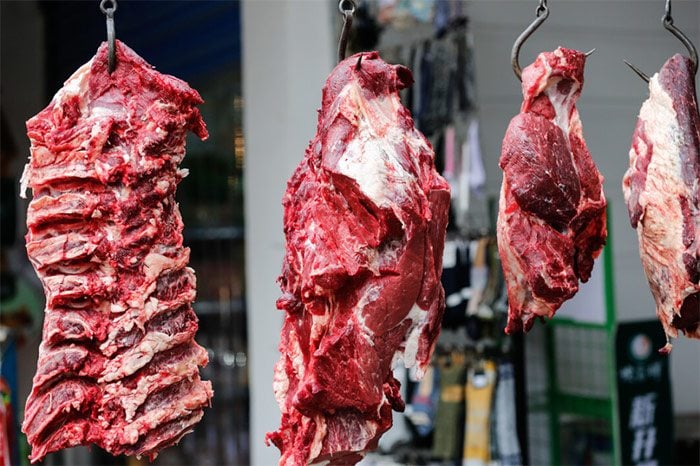Beef is a familiar food in family meals. It is nutrient-rich, packed with essential vitamins and minerals. Thanks to its high amino acid content, beef helps develop and maintain muscle mass. Additionally, the abundant protein, along with vitamin B6 and iron in beef, contribute to improved health, enhanced immunity, and support metabolism and blood regeneration. Beef is also suitable for those who engage in intense physical labor.
Beef can be prepared in a myriad of delicious ways, such as stir-frying, steaming, hot pot, salad, grilling, and more. However, not everyone is suited to consuming beef.

Individuals with high cholesterol
Beef, as a red meat, contains significant amounts of protein and saturated fat. These components can elevate cholesterol levels in the blood, exacerbating high cholesterol conditions. Thus, those with high cholesterol should steer clear of beef to maintain their health.
People with high blood pressure
Individuals with high blood pressure should also refrain from consuming beef due to its high saturated fat content, which contributes to increased blood pressure and places strain on the cardiovascular system. Eating beef regularly can make it challenging for those with hypertension to manage their condition, posing a severe health risk.
Women with uterine fibroids
Beef may stimulate the production of estrogen, a hormone associated with the growth of uterine fibroids. As such, women suffering from this condition are advised to avoid beef to prevent further complications.
Individuals with chickenpox
When afflicted with chickenpox, it is advisable to abstain from consuming beef, along with other “pungent” foods like seafood, chicken, and duck. These foods may hinder the healing process and lead to scarring.
People with arthritis
Beef, being exceptionally protein-rich, produces a substantial amount of acid during digestion. To neutralize this acid, the body utilizes calcium, and if calcium intake is insufficient, it will be drawn from the bones, weakening the skeletal system and causing extreme joint pain.

People with kidney stones
Those with kidney stones should also limit their beef intake. The protein from beef can increase oxalate levels in urine, which is a contributing factor to kidney stone formation. Thus, individuals with kidney stones are advised to reduce their consumption of beef and other protein-rich meats like fish, chicken, and duck.
Individuals with uric acid disorders (gout)
Beef contains high levels of purines, which can be converted into uric acid in the body. For those suffering from gout or at risk of developing the condition, limiting beef intake is recommended to prevent aggravating the disease.
3 Bad Habits That Turn Eggplants From Superfood to Super-toxic: Uncover the Right Way to Enjoy This Delicious Veggie
“Cà pháo, a versatile vegetable that stars in countless culinary delights, especially the iconic cà pháo muối, a staple in traditional Vietnamese meals. However, unbeknownst to many, improper consumption of this vegetable can lead to potential health hazards. Discover the hidden dangers lurking beneath the enticing flavors of cà pháo and learn how to navigate its consumption safely.”



































